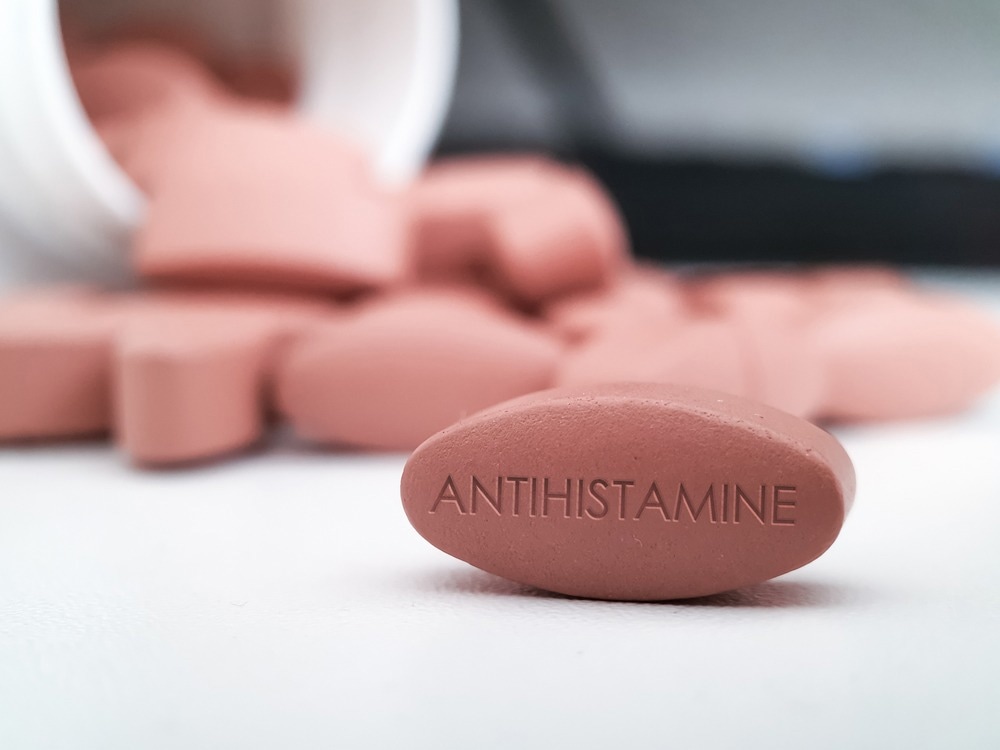Post-orgasmic illness syndrome (POIS) is a very rare condition that has been characterized by symptoms similar to allergies or flu immediately after ejaculation. POIS can persist for seven days before spontaneous resolution.

Study: Post orgasmic illness syndrome successfully managed with antihistamine: A case report. Image Credit: Sonis Photography / Shutterstock.com
Background
POIS patients mostly exhibit symptoms including extreme fatigue, a flu-like sensation, feverishness or perspiration, musculature weakness, memory difficulties, mood disturbances, incoherent speech, concentration problems, itchy eyes, and nasal congestion.
POIS patients can exhibit any one or more of the aforementioned symptoms within seconds, minutes, or several hours after ejaculation induced by masturbation, coitus, and/or spontaneously, such as during sleep. Most symptoms last between two and seven days, after which they disappear spontaneously.
About the case study
A 27-year-old healthy male patient complained of flu-like symptoms, including rhinorrhea, coughing, sneezing, and a hive-like rash on his forearms post ejaculation. In addition, this patient complained of facial and cervical lymphadenopathy, which became severe with enhanced ejaculation frequency.
These symptoms manifested irrespective of ejaculation from sexual intercourse or masturbation. The patient was so troubled with these symptoms that he actively avoided any sexual activity or romantic relationship.
The patient reported that the aforementioned symptoms were initiated when he was about 18 years old and suffered a suspected case of acute epididymitis that was treated with trimethoprim-sulfamethoxazole. He also contracted a chlamydial infection that was successfully treated with medication.
Previously, the patient consulted three urologists, an infectious disease specialist, an otolaryngologist, and an allergist. He was diagnosed with hay fever, whereas an allergen test revealed that he was sensitive to poison ivy and was diagnosed with a cantaloupe allergy.
Scrotal ultrasounds, testosterone levels, and semen analysis did not exhibit any anomalies. The patient was also subjected to antibiotic treatment that failed to improve his condition.
Recently, the patient was advised to take over-the-counter diphenhydramine every day with a gradual enhancement in ejaculation frequency. The patient was also referred to an allergist specializing in immunology for autologous skin prick testing and was subjected to a daily dose of 180 mg of fexofenadine.
Interestingly, the patient’s symptoms improved with a 90% decrease in POIS. This treatment allowed him to resume sexual activity.
Possible cause of POIS
Although the exact etiology of POIS is not clear, the commonly accepted theory involves the manifestation of symptoms from Type I and Type IV allergic reactions to autologous semen. This theory is supported by positive results of skin-prick tests in 88% of men with a high possibility of POIS.
POIS is also found in men who have undergone sterilization. Considering earlier studies, it was stated that if the immune response was the main cause of POIS and if the disease was also found in sterilized men, it is highly likely that the antigen was present within the seminal fluid rather than semen alone.
Since the POIS patient in the current case study developed symptoms after suspected epididymitis, there was a possibility that epididymitis induced the occurrence of an autoimmune process.
Current approaches to POIS management
To date, a single effective therapy for POIS is not available. Nevertheless, several treatments are used to treat POIS patients, including immunotherapies and selective serotonin reuptake inhibitors.
Previously, one POIS patient exhibited 60% symptomatic improvement for thirty-one months when he was subjected to desensitization by injecting dilute autologous semen. The concentration of autologous semen was gradually increased based on the clinical response of the patient.
Another patient revealed 90% symptomatic improvement over fifteen months following this treatment. Although this treatment holds significant promise for improving the quality of life of POIS patients, it is costly and requires frequent hospital visits for injection.
A clinical trial conducted in Brazil evaluated the efficacy of immunotherapy in POIS patients. This study found that immunotherapy did not significantly alleviate POIS symptoms.
Conclusions
The present study demonstrated that the POIS patient subjected to daily fexofenadine showed a 90% symptom improvement. However, no symptomatic improvement was observed when he was treated with diphenhydramine.
Although both diphenhydramine and fexofenadine exhibit similar mechanisms of action, fexofenadine was more effective and easily tolerated by the patient as a daily dose regime. This was because of the drug’s long-acting and non-sedative nature. Another advantage of fexofenadine treatment is that this drug is cost-effective and associated with a good safety profile.
In the future, more research is needed with a larger study cohort to determine the therapeutic benefits of fexofenadine in POIS treatment.
Journal reference:
- Shanholtzer, A., Stephens, J. R., Lauter, C., & Peters, K. M. (2022) Post orgasmic illness syndrome successfully managed with antihistamine: A case report. Urology Case Reports. doi:10.1016/j.eucr.2022.102189